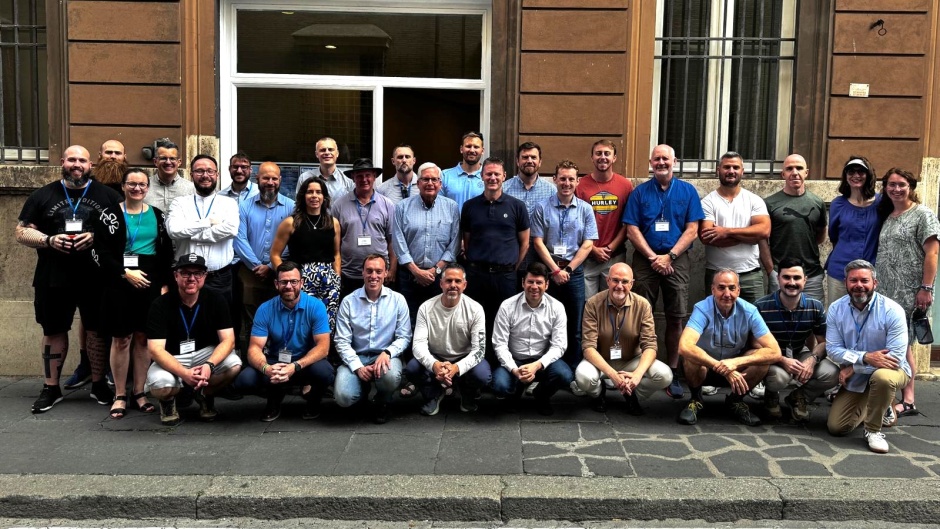An evangelical think tank to orient (without getting lost) in the universe of Roman Catholicism
Papers were followed by discussions and informal conversations that helped participants refine the issues and share applications to their specific contexts in academic, ecclesial, or missionary service. A book with 11 authors is planned for the end of this year.
19 JUNE 2024 · 13:25 CET

There are 1.3 billion Catholics in the world, making the Church of Rome the largest religious institution in existence. Yet evangelical attention to this group is superficial. For centuries, evangelicals have considered the “Catholic gospel” distinct and distant from the biblical gospel, but today, confusion and uncertainty are growing.
Changes within Roman Catholicism have not been accompanied by a clear evangelical understanding. Today, many evangelicals lack a biblical compass, new books and resources on the subject are scarce, and there is almost a reluctance to address it.
For all these reasons, the Rome Scholars and Leaders Network (RSLN), held in Rome from June 10-13, has become an annual event of global relevance, now in its seventh year.
With the participation of twenty-eight evangelical scholars and leaders from Albania, Australia, Belgium, Chile, France, Ireland, Italy, Poland, Romania, and the United States, the RSLN is an intensive conference focusing on evangelical analysis of Roman Catholicism.
Half of the participants were first-time attendees, while the other half were scholars who had participated in previous editions. Many were professors at evangelical theology faculties, PhD students or held leadership roles in evangelical ministries.
From Thomas Aquinas to the Marian apparitions
Topics covered during the RSLN included the pillars of the Roman Catholic theological system (the interdependence of nature and grace and the interconnectedness of Christ and the church), Roman Catholicism as a worldview, the Holy Spirit in Reformation theology and the synodal process, lessons for today from the exchange between Sadoleto and Calvin, two thousand years of Marian apparitions, an evangelical approach to Thomas Aquinas, J. H. Newman’s theory of doctrinal development, the dogma of the bodily assumption of Mary, challenges in evangelizing Catholics, reasons some Protestants convert to Catholicism, the theological method of Roman Catholicism, the Catholic theology of priesthood and Eucharist, trends in Catholic missiology, and the beatific vision in Protestant and Catholic theology.
The papers were followed by discussions and informal conversations that helped participants refine the issues and share applications of the various topics to their specific contexts in academic, ecclesial, or missionary service.
Dialogue and public event
A dialogue session with a Catholic theologian was also held during the RSLN, demonstrating that evangelical analysis is open to dialogue without practicing “ecumenical” forms of dialogue that presuppose Christian unity. Dialogue is seen as an opportunity for encounter. Prof. Philipp Renczes, dean of the Faculty of Theology at the Gregorian University, spoke on this occasion. Renczes presented some challenges facing Catholic theology and answered numerous questions about current trends within Catholicism.
As in previous editions, there was a public evening open to Roman evangelical churches this year. For the occasion, Gavin Ortlund, a North American evangelical apologist who is very active on YouTube, spoke on the theme “Always be ready: sharing faith today”, encouraging everyone to seize every opportunity with courage, respect, and trust in the Lord.
A book with RSLN authors
During the RSLN, a book entitled The Nicene Creed: Can Evangelicals and Catholics Profess It Together? was also presented. This book is the result of the collaboration of 11 scholars from the RSLN and will be published by the Australian publisher MatthiasMedia by the end of the year. It is an important contribution to evangelical discernment in view of the centenary of the Council of Nicaea, which will be commemorated in 2025.
Leonardo De Chirico, Reid Karr, Clay Kannard, of the Rome Scholars and Leaders Network.
One more year
Learn all about our #OneMoreYearEF campaign here (English).
Published in: Evangelical Focus - European perspectives - An evangelical think tank to orient (without getting lost) in the universe of Roman Catholicism
